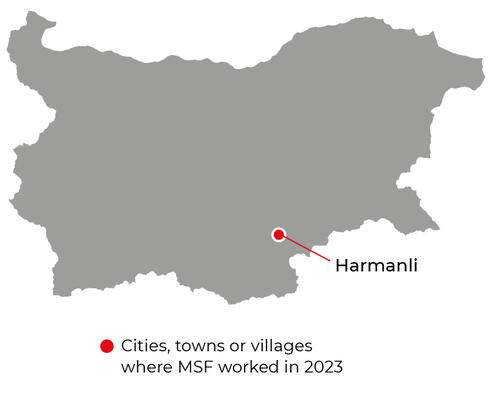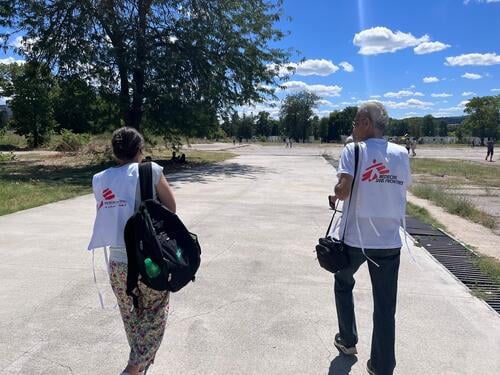Our team operated a clinic inside the Harmanli Reception Centre for migrants arriving in Bulgaria from 2023 until 2024. We provided general healthcare, sexual and reproductive health support, and care for non-communicable diseases at the reception centre. We first worked in Bulgaria in 1981.
Our activities in 2023 in Bulgaria
Data and information from the International Activity Report 2023.
4
4
€0.6 M
0.6M
1981
1981






